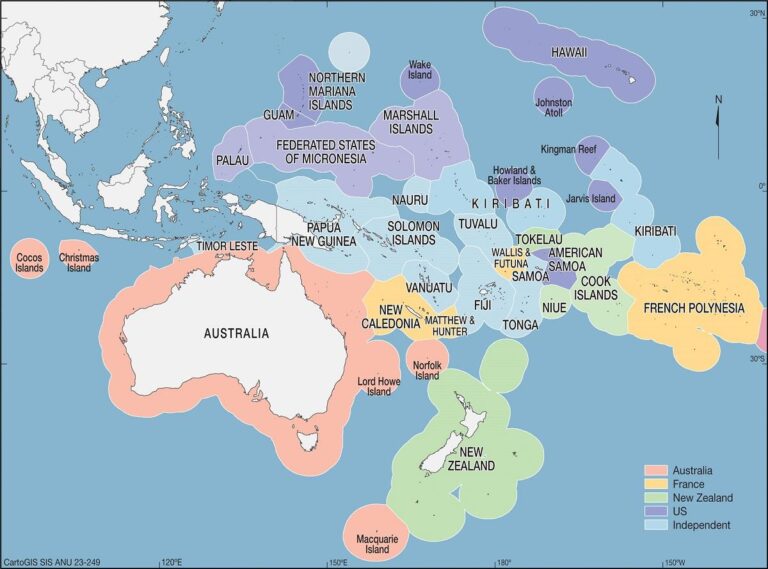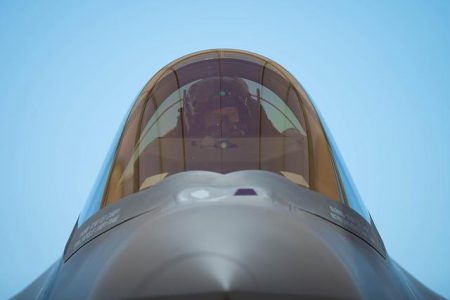Washington, D.C. ã Amid evolving geopolitical currents in the Indo-Pacific region, the United States confronts pivotal choices in shaping its trade relations with Pacific Island countries. Analysts at the East-West Center highlight that forging impactful economic alliances with these island nations demands more than strategic intent; it requires unwavering political dedication from Washington. This article delves into the spectrum of trade policy pathways available to the U.S., emphasizing the critical need for intentional engagement to bolster the economic sovereignty and development of Pacific Island states amid intensifying regional rivalry.
Prioritizing Economic Resilience in U.S. Trade Policy Toward Pacific Islands
To catalyze enduring economic advancement in the Pacific Islands, U.S. trade policy must transcend conventional diplomatic dialogue and establish a comprehensive framework that nurtures local industries, infrastructure, and human capital. This entails a strategic pivot toward cultivating enduring partnerships tailored to the distinct economic landscapes of Pacific Island nations. Washingtonãs approach should concentrate on streamlining trade processes, encouraging export diversification, and enhancing connectivity between these islands and international markets. Such measures will empower Pacific economies to become more resilient and self-reliant, better equipped to withstand challenges like climate change impacts and global supply chain volatility.
Essential elements of this strategy include:
- Focused investments in clean energy initiatives to diminish reliance on imported fossil fuels and promote sustainability.
- Capacity enhancement programs designed to improve governance and trade negotiation expertise.
- Broadened market access for Pacific Island exports through harmonized and simplified regulatory frameworks.
- Development of digital infrastructure to close connectivity gaps and unlock e-commerce potential.
| Focus Area | Anticipated Benefit | U.S. Contribution |
|---|---|---|
| Clean Energy | Reduced energy expenses and enhanced environmental resilience | Financial backing and technology sharing |
| Trade Capacity | Improved export competitiveness and market integration | Training programs and policy guidance |
| Digital Connectivity | Expanded access to global markets | Infrastructure investments and grants |
Overcoming Trade Barriers Facing Pacific Island Economies
Trade activities in the Pacific Islands are impeded by a complex array of obstacles beyond mere geographic isolation. The small scale of local markets, inadequate infrastructure, and intricate regulatory environments pose significant challenges to integrating these economies into global supply chains. Addressing these issues requires simplifying customs procedures, enhancing transportation links, and establishing transparent regulatory systems. Additionally, strengthening digital trade platforms is vital to connect local producers with international consumers effectively.
Policy reforms in Washington should emphasize empowering Pacific Island nations through capacity-building measures that enable compliance with global standards. Key initiatives include:
- Technical support to meet sanitary and phytosanitary regulations.
- Financial investments aimed at modernizing port facilities and logistics infrastructure.
- Trade facilitation schemes to streamline export documentation and procedures.
| Challenge | Recommended Solution | Projected Outcome |
|---|---|---|
| Elevated shipping expenses | Negotiation of preferential shipping agreements | Lower export costs |
| Complex regulatory frameworks | Regulatory alignment and simplification | Smoother market entry |
| Insufficient digital infrastructure | Investment in broadband and ICT networks | Growth in e-commerce and digital trade |
Leveraging U.S. Aid to Strengthen Infrastructure and Workforce Skills
Targeted U.S. assistance plays a pivotal role in fostering sustainable development and resilience within Pacific Island economies. Strategic investments in sectors such as transportation, telecommunications, and energy infrastructure not only enhance economic capacity but also improve regional integration. By focusing on capacity building, the U.S. can help these nations overcome unique developmental hurdles while reinforcing trade and diplomatic relations.
Assistance programs prioritize technology transfer, skills training, and institutional capacity enhancement. These initiatives empower local communities to effectively operate and maintain new infrastructure, ensuring lasting benefits. The table below outlines key focus areas alongside corresponding U.S. aid efforts:
| Sector | U.S. Aid Program | Expected Impact |
|---|---|---|
| Clean Energy | Renewable Energy Grants | Decreased fossil fuel dependence and enhanced sustainability |
| Transport | Modernization of Ports and Airports | Increased trade efficiency and connectivity |
| Digital Networks | Broadband Infrastructure Expansion | Improved communication and market reach |
| Human Capital | Technical Education Scholarships | Strengthened local expertise and employment opportunities |
Cultivating Sustained Political Commitment for Regional Engagement
Building a durable political will is fundamental to deepening U.S. partnerships with Pacific Island countries. This necessitates a continuous commitment that transcends political administrations, avoiding sporadic or short-term involvement. Washington should embed Pacific priorities within its broader foreign and trade policy agendas through ongoing strategic dialogues. Empowering regional organizations and supporting capacity-building initiatives will enable Pacific Island states to actively influence trade negotiations and economic collaborations.
Critical components for fostering this enduring political resolve include:
- Steady funding streams for regional development projects, ensuring reliable support for infrastructure and trade facilitation.
- Regular high-level diplomatic engagements to reaffirm U.S. commitment.
- Institutionalized consultation platforms involving Pacific Island leaders in policy formulation.
- Public outreach campaigns to elevate awareness within the U.S. about the strategic significance of Pacific partnerships.
| Policy Initiative | Anticipated Result | Implementation Timeline |
|---|---|---|
| Annual U.S.-Pacific Economic Forum | Enhanced multilateral trade cooperation | Ongoing |
| Establishment of a Pacific Trade Coordination Office | Improved policy coordination and responsiveness | 1-2 years |
| Regional Capacity Development Grants | Strengthened negotiation and implementation capabilities | 3-5 years |
Conclusion
As Pacific Island nations navigate an increasingly intricate global trade landscape, the imperative for consistent and strategic engagement from Washington is more pressing than ever. Insights from the East-West Center reveal that without steadfast political resolve from the United States, initiatives to deepen economic ties and tackle shared challenges risk falling short. Moving forward, U.S. trade policy must balance immediate economic objectives with broader strategic and environmental considerations. The manner in which Washington chooses to engage with these island states will significantly influence the Pacificãs economic trajectory for decades ahead.







